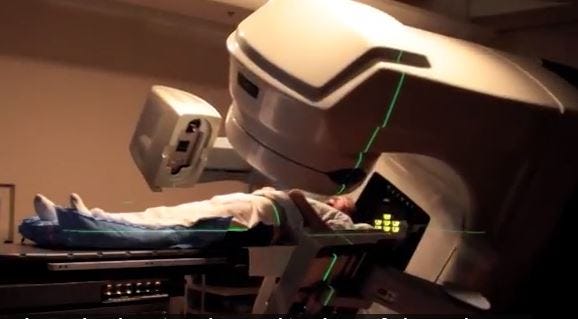Tumor Technology and ER Device Win Venture Awards
 LoDos Theranostics says its therapy deploys low-energy ultraviolet light within the tumor to kill cancer cells.
LoDos Theranostics says its therapy deploys low-energy ultraviolet light within the tumor to kill cancer cells.
Subscriber Benefit
As a subscriber you can listen to articles at work, in the car, or while you work out. Subscribe NowConventional cancer treatment methods use radiation to shrink tumors from the outside, but a West Lafayette-based startup says its technology can attack tumors from within, delivering better results without the common damaging side effects of radiation. LoDos Theranostics captured top prize at the recent New Venture Competition during the Indiana Life Sciences Summit, followed by Jeffersonville-based Inscope Medical Solutions; the startup is launching its product nationally to clear the airways for emergency room patients.
The sixth annual competition, led by Indiana life sciences initiative BioCrossroads, has awarded more than $300,000 to 20 startups, leading to about $26.5 million in follow-up funding.
Purdue University researcher Dr. You-Yeon Won says about one million cancer patients receive radiation annually in the U.S., and chemotherapy drugs are very toxic, even if administered to the tissue locally. Based on discoveries in his lab, LoDos Theranostics is developing an alternative method called radio luminescence therapy. LoDos Theranostics management team member Tim Parshall says traditional radiation treatment uses high-energy X-rays, for example, to shrink tumors and kill cancer cells, but the startup deploys low-energy ultraviolet light within the tumor.
“You can use [ultraviolet light] on frail and elderly patients who don’t tolerate radiation very well; ultraviolet light is much, much less damaging,” says Parshall. “And up to 50 percent of tumors have some degree of radio resistance; you have to treat them with so much [radiation], it does really terrible things. That doesn’t happen with ultraviolet light.”
The technology involves injecting Radio-Luminescent Nano Particles directly into the tumor, restricting the radiation to the area of the tumor, rather than damaging surrounding tissue.
“You radiate [the tumor] like a normal X-ray, but [the Nano Particles] give off ultraviolet light from the inside—so they light up on the inside. That destroys the tumor deep inside,” says Parshall. “You’re actually getting the ability now to administer a known therapy deep inside the body, which we haven’t been able to do before. That’s what makes it so exciting.”
The startup says the $25,000 in prize money will help attract more funding for additional pre-clinical work, but the first-place ribbon carries other significance.
“[Winning the competition] is an endorsement that [the technology] is not just a good idea, but that other people in this space see it as a good idea,” says Parshall. “Feedback at this stage is so important; you need to have folks look at it with a critical eye.”
Second place winner Inscope Medical Solutions echoes the sentiment that validation from experts is as valuable as the $15,000 in runner-up prize money.
“Often, we walk into a group of general investors whose knowledge of the medical device industry and science is somewhat limited,” says Inscope Chief Executive Officer and co-founder Maggie Galloway. “It’s fantastic to present to investors who really know the medical device and life sciences space; they can ask critical questions and understand what we do.”
Galloway says the Inscope Direct device helps physicians intubate trauma patients, a procedure in which a breathing tube is inserted through the mouth into the trachea to help the patient breathe effectively. Galloway says studies have shown the device reduces the time of intubation by 45 percent—a significant stat in the ER, where seconds matter.
The startup is now launching its device nationally at the American College of Emergency Physicians Scientific Assembly after a limited release over the summer.
“We’re excited to get this device into the hands of as many clinicians as we possibly can to be able to save lives,” says Galloway. “It’s a huge milestone for us to announce this device to the world [at the Assembly].”
Indiana Lysis Technologies won the third place $10,000 prize. Buoyed by the prize money and exposure during the event, BioCrossroads is hopeful the handful of promising startups will mature into successful companies that will fuel the next generation of growth in Indiana’s life sciences industry.
Parshall says the technology delivers the benefits of radiation without the damaging side effects.
LoDos Theranostics management team member Gary Noonan says the startup is looking to collect more feedback from potential investors.
Galloway says the competition is an important funding boost and networking opportunity.
